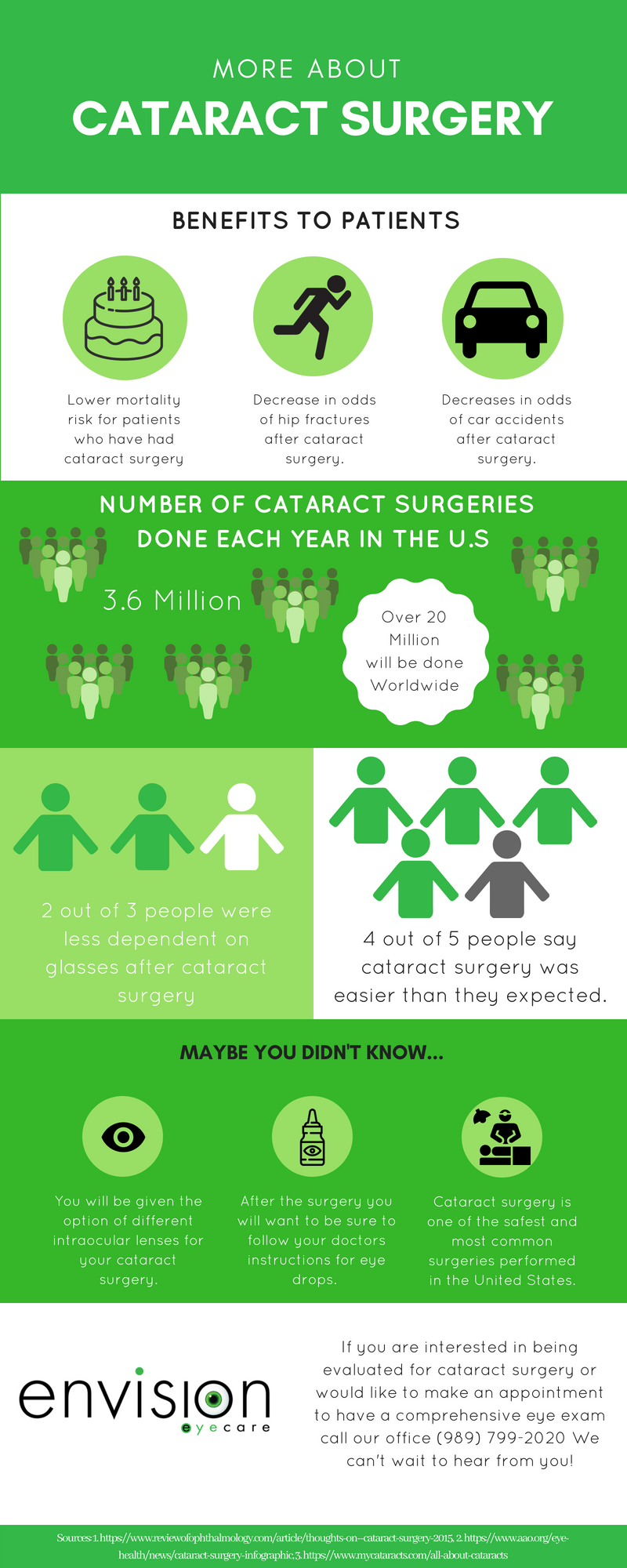Is SMILE Eye Surgical Treatment The Right Selection For You? Crucial Factors To Consider And Insights
Is SMILE Eye Surgical Treatment The Right Selection For You? Crucial Factors To Consider And Insights
Blog Article
about how much does cataract surgery cost By-Lundgreen Patel
If you're considering SMILE eye surgical procedure, contemplate this: are you prepared to welcome prospective visual freedom, or does the thought of any type of dangers make you think twice? Your choice will certainly hinge on a mindful balance of weighing the advantages versus the unpredictabilities. It's vital to dig deeper into the nuances of SMILE surgical procedure to make an informed choice that aligns with your visual objectives.
Recognizing SMILE Eye Surgical Treatment
When considering SMILE Eye Surgical procedure, it is essential to understand the treatment and its advantages. SMILE, which stands for Small Laceration Lenticule Removal, is a minimally intrusive laser eye surgery that fixes common vision troubles like myopia (nearsightedness).
Throughout the procedure, your eye specialist will utilize a femtosecond laser to produce a little laceration in your cornea. Through this cut, a small disc of tissue called a lenticule is gotten rid of, improving the cornea and correcting your vision.
One of the key advantages of SMILE Eye Surgical procedure is its quick healing time. Several clients experience boosted vision within a day or two after the treatment, with very little pain.
Additionally, SMILE is recognized for its high success price in supplying long-term vision correction. Unlike LASIK, SMILE doesn't call for the creation of a flap in the cornea, lowering the threat of difficulties and permitting a more secure corneal structure post-surgery.
Comprehending the treatment and its benefits is essential when thinking about SMILE Eye Surgical procedure for vision improvement.
Benefits and drawbacks of SMILE
Considering SMILE Eye Surgical treatment for vision modification features numerous advantages and possible downsides.
Among the primary pros of SMILE is its minimally intrusive nature, as it entails a tiny cut and commonly results in fast recuperation times. The treatment is likewise understood for triggering marginal discomfort and dry eye symptoms post-surgery contrasted to various other vision modification approaches. Additionally, SMILE has been revealed to offer superb aesthetic results, with numerous people achieving 20/20 vision or better.
On https://whatdoeslasereyesurgeryco62849.qodsblog.com/29283901/discovering-the-perfect-eye-decline-for-dry-eyes-an-evaluation-of-top-brands , a potential disadvantage of SMILE is that it might not appropriate for people with serious refractive mistakes, as the therapy range is somewhat minimal compared to LASIK. look at this site is that the discovering contour for specialists executing SMILE can influence the availability of knowledgeable service providers in particular areas.
It is essential to consider these pros and cons carefully when deciding if SMILE is the best selection for your vision correction demands.
Identifying Eligibility for SMILE
To figure out if you're qualified for SMILE eye surgical procedure, your optometrist will certainly conduct a comprehensive analysis of your eye health and wellness and vision demands. During this assessment, elements such as the security of your vision prescription, the density of your cornea, and the overall health of your eyes will certainly be assessed.
Normally, candidates for SMILE more than 22 years old, have a stable vision prescription for at the very least a year, and have healthy corneas without conditions like keratoconus.
Your eye doctor will certainly also consider your total eye health, any kind of existing eye conditions, and your lifestyle needs to establish if SMILE is the appropriate option for you. It's vital to connect any kind of particular aesthetic requirements or problems you may have during this assessment to make certain that the therapy aligns with your expectations.
If you aren't qualified for SMILE, your optometrist might advise alternative vision correction alternatives that much better suit your private requirements and eye health standing.
Conclusion
Inevitably, making a decision whether SMILE eye surgical procedure is right for you calls for careful consideration of your individual eye health and wellness and visual demands. Seek advice from your ophthalmologist to identify your eligibility for the treatment and consider the prospective advantages and drawbacks. Remember to communicate any type of concerns or concerns you may have during the assessment process to make an educated decision about your vision improvement choices.
